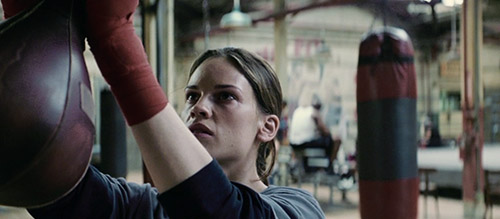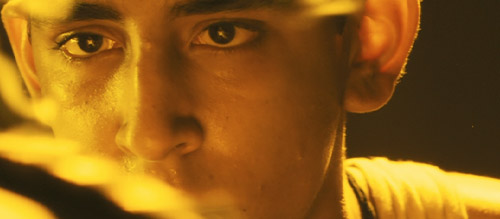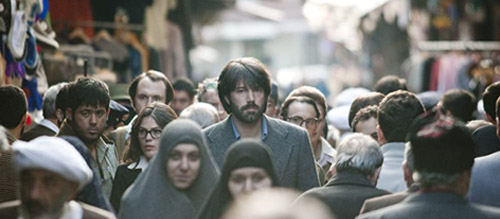21st Century Best Picture Oscar Winners Ranked
20. Chicago – 2003
The other nominees: Gangs of New York; The Hours; The Lord of the Rings: The Two Towers; The Pianist
Another archetypal Oscars winner in that it is a movie adaptation of a stage show – and we all know that Hollywood likes nothing more than to legitimise itself through comparisons to the stage form – Chicago is at least a bit of fun.
The movie musicals of Gene Kelly or La La Land it is not – this Rob Marshall-directed effort being presented very much as a stage show on screen and thus lacking the same cinematic qualities of the aforementioned films – but its songs are entertaining, its plot shallow but certainly interesting enough to carry your attention, and the ensemble of star names with song and dance numbers can be an audience pleaser.
Looking back on Chicago, it’s somewhat astounding that it received 6 Oscars (with a further 7 nominations), especially in comparison to the other nominated films of 2003 and specifically in comparison to films of the past decade, but the Academy was nothing if not predictable in the early 2000s, and a relatively successful stage adaptation with a strong cast was always going to earn their favour.
As evidenced by the films already on this list… you can do worse than Chicago, but that doesn’t exactly make it a classic.
19. Million Dollar Baby – 2005
The other nominees: The Aviator; Finding Neverland; Ray; Sideways
Clint Eastwood’s Million Dollar Baby is certainly the most melodramatic of Best Picture-winning dramas on this list, many of its standout moments – including an injury sequence that acts as the crux of the narrative – being frankly hilarious by today’s more toned down Oscar drama standards. Nothing will take you out of an intimate tale of crashing through boundaries and overcoming the odds like a slow-motion fall and crack of the neck shot with all of the glamour of a Hollywood production.
Clint Eastwood’s films have never been for everyone, but in Million Dollar Baby the actor-turned-director got the acting branch of The Academy of Motion Picture Arts & Sciences on his side by directing three quite phenomenal performances, including his own. Eastwood plays old, tired and set in his ways about as well as anyone, and he excels in doing so here, while Hilary Swank leads the ensemble with a sensational and transformative performance that earned her the Best Actress Oscar for the 2nd time (the first being for Boys Don’t Cry in 2000). The pair form a believable and nuanced on-screen relationship, with Morgan Freeman offering some of the best support of his career and winning an Oscar for his efforts.
There’s no doubt that Million Dollar Baby will have its fair share of detractors in the 2020s given its dated techniques and how it embellishes in drawing out dramatic sequences filled with dialogue (to the point of boredom for some), but it is a film that excels in parts and features performances that aren’t to be missed. It’s not exactly the go-to film when thinking of Best Picture Oscar winners, but at least it isn’t as bad, bland or offensive as the films that have been listed thus far.
18. Slumdog Millionaire – 2009
The other nominees: The Curious Case of Benjamin Button; Frost/Nixon; Milk; The Reader
Significant in how it marked a huge step for Digital filmmaking in an era where push-back against the filmmaking technique was as strong as it ever would be again, Slumdog Millionaire proved that celluloid wasn’t the only way to shoot a crisp and stylised picture, director Danny Boyle fusing the music and colour of Bollywood with the rapid, arthouse techniques of his filmic upbringing to tell a tale reminiscent of the formative years of the American Dream, and thus very much in the Academy voters’ wheelhouse.
Starring relative unknown Dev Patel in a breakout role that would thrust him on to become one of the top actors of his generation, and made a part of the public consciousness by a pop music collaboration between The Pussycat Dolls and Indian composer A.R. Rahman, Slumdog Millionaire was more of a cultural phenomenon than many of the Best Picture winners would go on to be throughout the 2010s, yet remains an unusual outlier in the Oscars’ Best Picture winners list.
Slumdog Millionaire took up the mantle of awards season underdog in a way that mirrored the movie’s own narrative, the surprise box office success of the film – going from being played in 10 theaters in the US to over 2,000 in a matter of weeks – only reinforcing the point; whilst Slumdog also fit into the boxes of “inclusive”, “individualistic” and “capitalist”, each of which the Academy so often lean towards. Perhaps more insipidly, Hollywood was predicting that India’s one billion person population was set to become one of the world’s largest box office markets, and thus an open arms embrace of an Indian co-production set within the nation was seen as likely to be financially beneficial for most influential figures across Hollywood’s biggest studios, and thus the Academy.
Somewhere between the above perspectives lies the truth behind Slumdog Millionaire becoming a Best Picture-winning film, the qualities of this Danny Boyle movie becoming less clear as time passes. The highly influential British filmmaker has made more reputable films, and certainly better ones, but so rarely have so many political factors fused into one film’s push towards that golden statue, Slumdog Millionaire itself being an interesting independent film but one that has certainly dated in the relatively short amount of time since its release.
Recommended for you: Danny Boyle Films Ranked
17. Argo – 2013
The other nominees: Amour; Beasts of the Southern Wild; Django Unchained; Les Misérables; Life of Pi; Lincoln; Silver Linings Playbook; Zero Dark Thirty
The story of Argo winning Best Picture is one we are all familiar with: combine a liberal-leaning but certainly patriotic text with a wider comeback narrative for one or more of a film’s key players and you are likely to earn favour with The Academy of Motion Picture Arts & Sciences.
In Ben Affleck’s third directorial effort, Affleck himself was the comeback story. The screenwriter, actor, producer and star had seen respect for his career decline over the 2000s owing to a very public relationship with Jennifer Lopez and more personal issues. After earning back some of the trust Hollywood had reserved for him in his early career with the releases of his directorial debut Gone Baby Gone (2007) and follow-up The Town (2010), Argo seemed like the culmination of Ben Affleck’s comeback narrative and a fine excuse for The Academy to prove themselves right for making Affleck and co-writer Matt Damon the youngest ever Screenplay Oscar winners for Good Will Hunting in 1998. Not only was this a comeback story for a Hollywood A-Lister, it was a piece of self-adulation for The Academy.
The self-adulation was two-fold however, with the film’s narrative being one that sees CIA agents impersonate filmmakers in order to rescue US citizens from a hostage crisis in Tehran, Iran. At the time, the Best Picture win was somewhat surprising, but in retrospect it seems like the only choice The Academy were ever going to make given that in Argo it is filmmaking that is the truest of heroes during a crisis of mortal threat during a very real event (the Tehran crisis actually happened).
On the screen, Argo is good. It is by no means exceptional, and there’s no doubt that better films were nominated in the same year, but it’s also far from the worst of the year’s nominees and has just enough going for it to maintain engagement close to a decade later. The supporting cast are certainly highlights – character actors and A-Listers combine into an eclectic group – and this isn’t one of the Best Picture winners that feels like a total waste of time or entirely outdated by this point, but Argo wasn’t the best film of its year or one of the 22 best films of the century, it was “good”, and “good” isn’t going to cut it amongst the group of films to come.
Recommended for you: Ben Affleck Movies Ranked
16. A Beautiful Mind – 2002
The other nominees: Gosford Park; In the Bedroom; The Lord of the Rings: The Fellowship of the Ring; Moulin Rouge!
The turn of the century was a time dominated by the performances of Russell Crowe. The New Zealand actor had been nominated at the 2000 Oscars ceremony for his starring turn in The Insider, then won the Best Actor award the following year for Gladiator. By 2002 his stock was at an all-time high and, keen to show his variety of skills as a performer, he took on the role of real-life American Nobel Laureate in Economics, and Princeton University professor, John Nash in A Beautiful Mind.
His was a performance that wowed, his shy and repressed character proving quite the contrast to the hyper-masculine one he played in Gladiator and Crowe mutating his body, voice and mannerisms to match, but it seemed all along like A Beautiful Mind was destined to be an awards season frontrunner.
The true-to-life formula has always been a big hit with The Academy, and A Beautiful Mind had the added benefits of being about an important American figure, being adapted from a Pulitzer Prize-winning novel, and having deep and troubled roles for its actors to dig into (lest we forget that The Academy’s largest branch of voters is that of the actors). If any film screamed “Best Picture” at the time, it was this one.
It’s not all Academy formula manipulation however, as Ron Howard’s film does feature some truly exceptional elements – the most stunning being the performance of Jennifer Connelly who won the Supporting Actress award that year – but like a lot of its fellow Best Picture winning “issues” movies, there are many ways in which it hasn’t aged well. The representation of mental health is questionable, which is quite the shock for a film largely about it, and the hammy and at times largely inaccurate presentation of some of the events simply doesn’t live up to the standard many thought it had set at the time.
Recommended for you: Top 10 Ron Howard Movies






